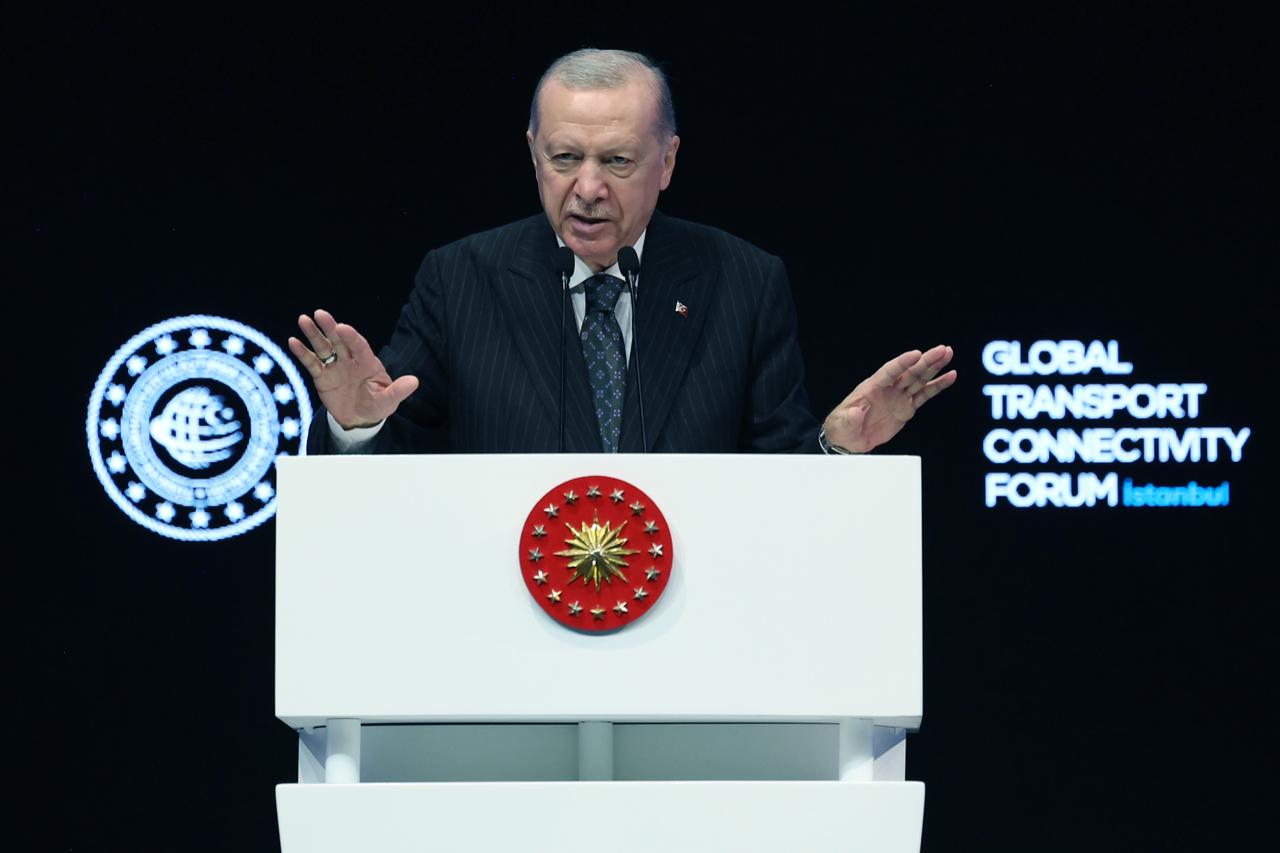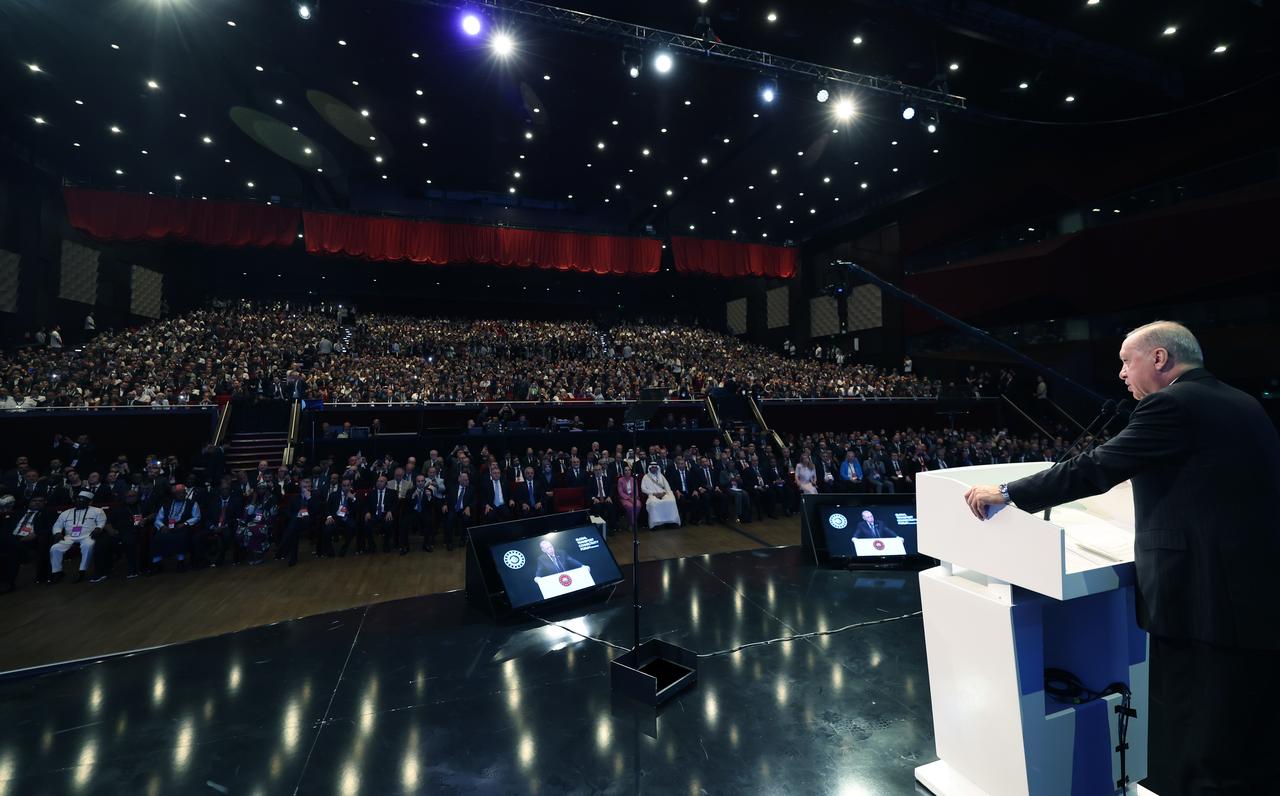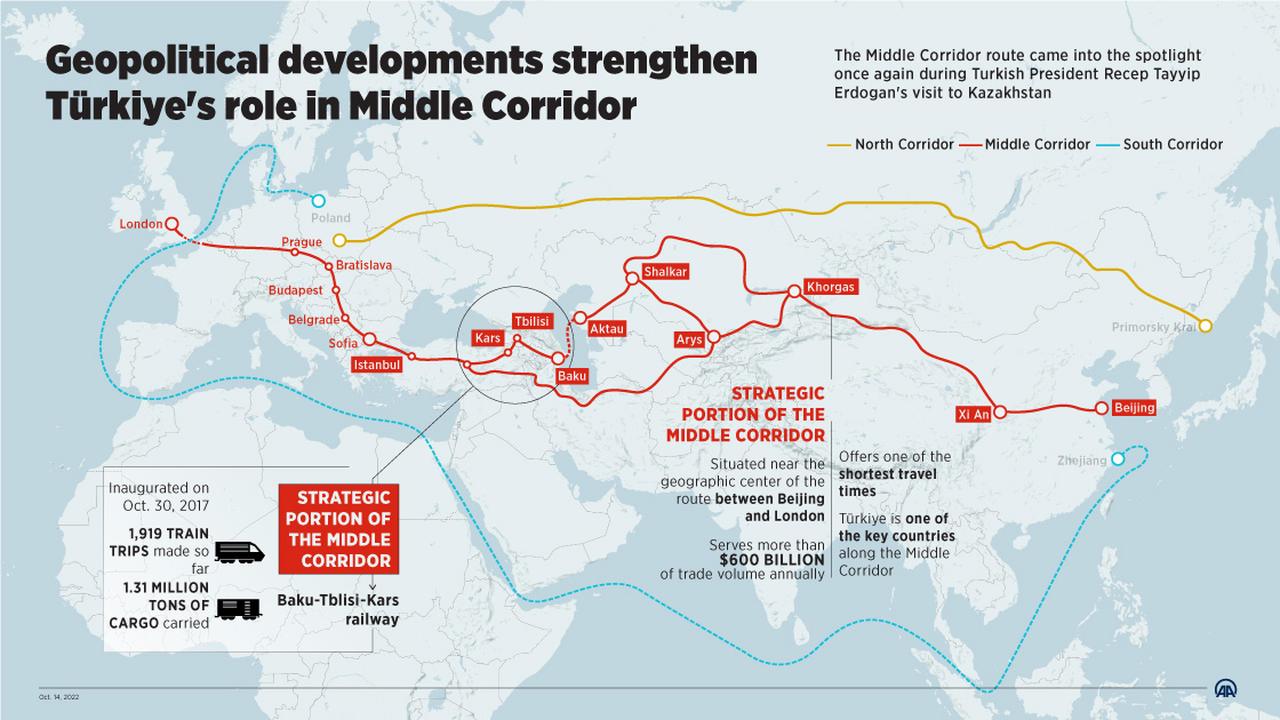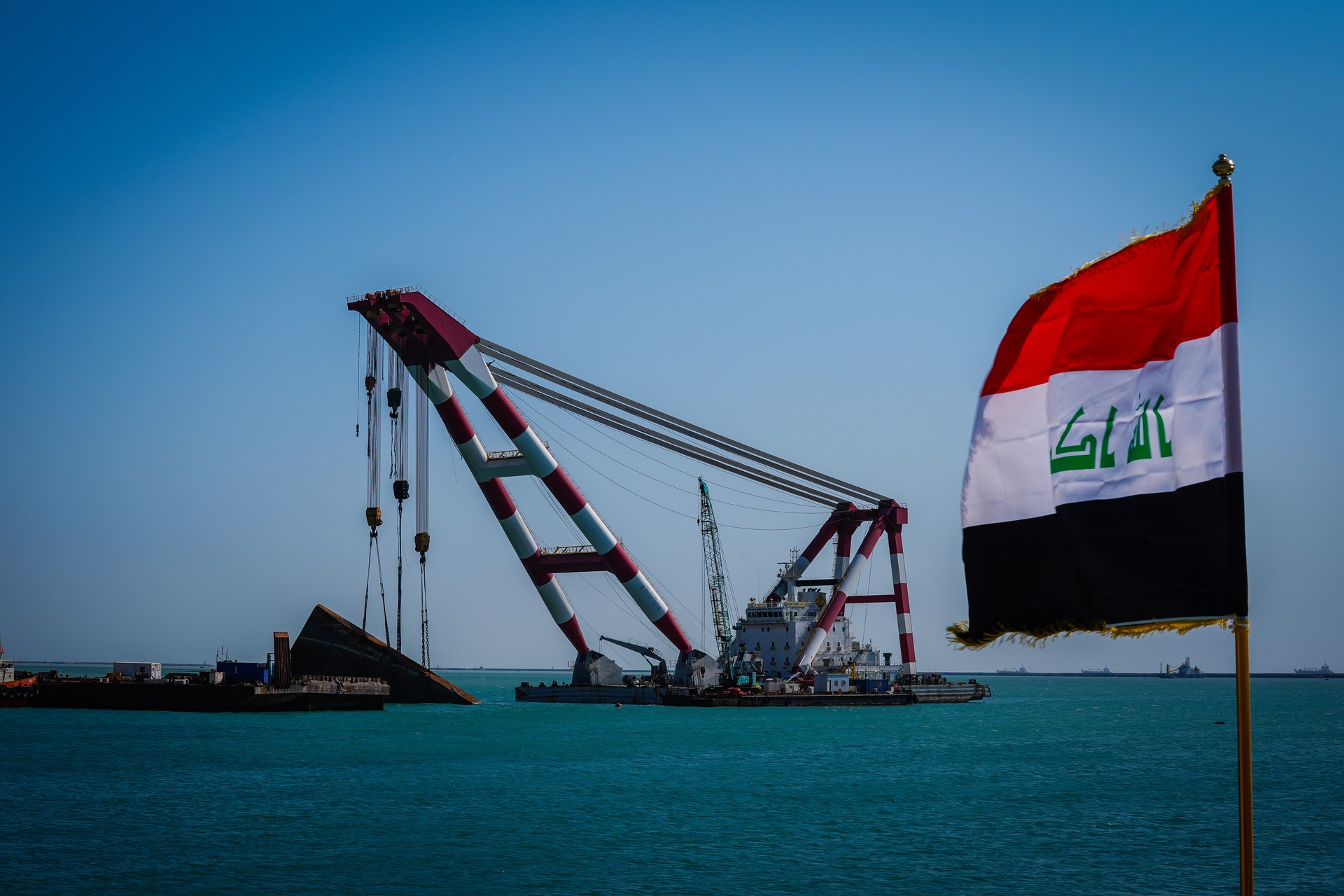
President Recep Tayyip Erdogan said "The Middle Corridor's railway trade volume potential is at the level of $75 billion" while speaking at the Global Transportation Corridors Forum in Istanbul.
Speaking at the opening of the Global Transportation Corridors Forum at Istanbul Lutfi Kirdar International Congress and Exhibition Palace, Erdogan said "During our governments' period, we invested approximately $300 billion in transportation and communication infrastructure. Of these investments, $177 billion went to roads, $64 billion to railways, $25 billion to airways, $4 billion to maritime, and $25 billion to communication infrastructure."
"The production impact of these investments amounts to $1.065 trillion. Transportation investments have literally become the driving force of our economy," he added.
The president also noted "Recent tensions in our region, uncertainties in the Strait of Hormuz and airspace, have once again reminded us how valuable new and secure transportation routes are."

The Middle Corridor, spanning 21 countries between China and Europe, is positioned as a faster and more cost-effective alternative to traditional sea and air routes.
Erdogan noted that while shipping via the Suez Canal takes 35 days and via the Cape of Good Hope about 45 days, the Middle Corridor is expected to reduce this to less than 15 days once all investments are finalized.
"We have already commissioned the Baku-Tbilisi-Kars Railway, which forms the backbone of this corridor," Erdogan said, adding that Türkiye continues to align the Middle Corridor with China’s Belt and Road Initiative.
"The Middle Corridor, which extends from China to Europe and connects 21 countries with a railway network, offers transportation that is twice as fast compared to sea routes and approximately 4 times more economical compared to air routes," Erdogan stated.
"The Middle Corridor's railway trade volume potential is at the level of $75 billion. Our annual transportation capacity in our country is around 6.5 million tons. With our current investments, we target an annual transportation capacity of 6.5 million tons," he added.
"When we implement the projects we are continuing to build and planning for the Middle Corridor, we foresee that we will provide a total production impact of $114 billion and employment for an annual average of 144,000 people," Erdogan said.

Erdogan also emphasized the strategic importance of the "Development Road" project, centered on Iraq. "Through this project, cargo arriving at Iraq’s Faw Port will be transported through our country to Europe," he said.
The Development Road’s 10-year projection foresees a production impact exceeding USD 50 billion and an annual employment contribution of around 63,000. "We will transform our geopolitical advantages into a comprehensive economic benefit for the entire region," Erdogan stated.
"The Development Road, which is a peace project beyond being a commercial vision, is the key to regional stability and prosperity with its position centering our neighbor Iraq while connecting geographies on the north-south axis," Erdogan also noted.
"Through the project, it is aimed that the cargo coming to Iraq's Faw Port will be opened to Europe through our country. The Development Road's 10-year projection impact on production will exceed $50 billion. Its employment impact is calculated to reach an annual average of 63,000 people," he stated.

Erdogan outlined that Türkiye has invested approximately USD 300 billion in transportation and communication infrastructure over the past two decades. Of this, USD 64 billion has been allocated to railway development.
“Our railway network expanded from 10,948 kilometers in 2002 to 13,919 kilometers today. Electrified lines grew from 2,122 to 7,274 kilometers,” he said. Erdogan also emphasized the role of transportation infrastructure as a driving force behind economic growth and employment.